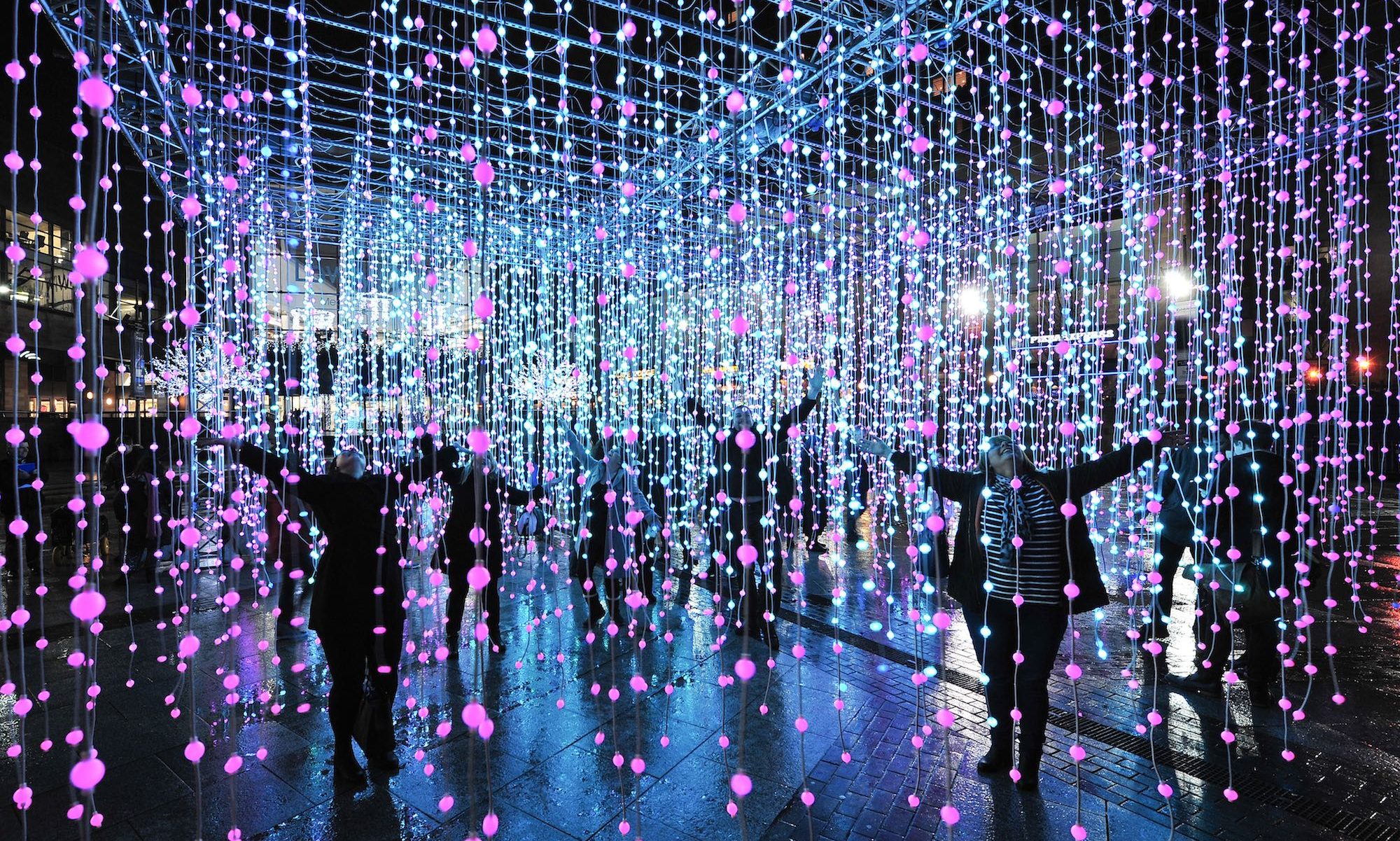Hello all!
This week, I was tasked with making a yeast light art prototype. I decided to explore the painting technique this week, as this is a more sure bet than the long exposure, photographic technique.
Show and Tell–
Because my project uses genetically modified GFP yeast, I cannot transport it to class. I am, however, meeting with Professor Farny tomorrow- she has a lab facility in Goddard that can handle my yeast plates. I may be able to get the class access to the Goddard Lab to see the final work.
Instead of the show and tell, I documented my process & results.
To make my GFP Yeast Prototype, I first grew green florescent yeast in a liquid medium. I also grew non-GFP yeast in another tube.

After that, I selected a petri dish with yeast-agar inside of it, and pipetted both yeast solutions into the dish. I did so randomly, so the yeast could grow as they pleased. I mixed the yeast strains so that they could grow together and compete for space on the dish, naturally producing complex patterns in the process.
This is the dish @ 0 hours:

The dish @ 1 day:

After the yeast grew, I contacted Professor Duffy & he let me use his microscope to take pictures of my plate.

The microscope is fitted with different light filters, to allow visualization of GFP (green) , BFP (blue), and mCHERRY (red). I took my sample, placed it under the microscope, and turned on the GFP filter (UV/395nm wavelength).
This was the result:

The glowing portion is a GFP cell cluster that grew.
This picture was taken at 8X, so it is a portion of the plate. Also, the microscope camera was acting up, so I had to line my phone up to the ocular to take the picture,which is why the picture has a low resolution.
Optimization:
There are several optimizations I would like to do for my yeast art:
- Find a microscope/ system to allow imaging of the whole plate
- Use paint brushes to make designs on Agar plates
- Get a camera to take a picture of my plates every minute for 12 hours…
- Use my new long exposure setup to make glowing yeast photography
As for (1), I have also contacted Professor Farny; I heard from Professor Duffy that her IGEM team makes bacteria art on agar plates as well, and has a setup that will allow for full plate illumination. I will be able to do this on Friday.
I am also going to try exposing my plates to simple LEDs of the correct wavelengths, to see if this is an effective means of art visualization. If that works, I may be able to bring my art to class.

Simple LED setup I rigged with a basic stamp
*I will also purchase a UV (395nm) flashlight to visualize the GFP.

This is an image I took with my LED setup. I currently am waiting for a UV LED to get delivered to illuminate the GFP, but the effect produced with the backlit red LED is still visually interesting.
I have also made progress with my UV long-exposure setup:

This is a UV sterilizing light-bulb, placed in a simple desk lamp, underneath a protective box. Yesterday, when the parts came in, I made a plate of GFP yeast, and exposed it to the light for about 5 hours. I am currently awaiting results.
Materials:
I have acquired most of the materials I need:
- GFP Microbes
- Petri Dishes
- Cell Feed/Agar
- Basic GFP Microscope
- UV Lamp
- Transparent Printing Sheets
- Box
I still need these materials/accesses:
- LED Lights/ Illumination Visual tool (I have ordered this)- http://https://www.amazon.com/Escolite-Flashlight-Ultraviolet-Blacklight-Detector/dp/B008133KB4/ref=pd_lpo_vtph_468_bs_t_1?_encoding=UTF8&psc=1&refRID=3MW14DHDR5QQEC1GZ1SJ
- Access to Professor Farny’s IGEM Lab (GFP Scopes/ visualization tools & possibly GFP Bacteria)*I will be meeting with her tomorrow to gain access to her lab*.
Milestones:
- Get access to Farny Lab in Goddard (4/6/2018)
- Get a whole GFP glowing agar plate image (4/12/2018)
- Get a Photo-image in GFP yeast or bacteria (4/12/2018)
- Get a camera & Document the development of GFP painting/ photo (4/16/2018)
- Create a yeasty design, scale & edit in photoshop to fit the petri dish (4/16/2018)
- Test & optimize the design (4/16/2018-4/24/2018)
- Grow the design multiple times & record the growth w/pictures (4/24/2018)
- Optimize & create a stop-motion growth video or time-lapse growth series (End)
- *Allow class access to the Goddard Lab to see the art (end)* *If possible
